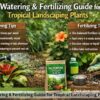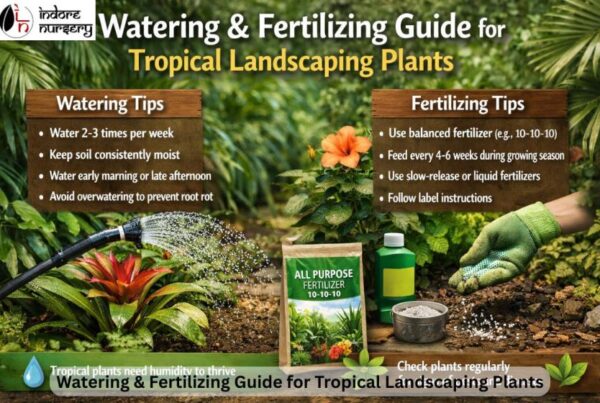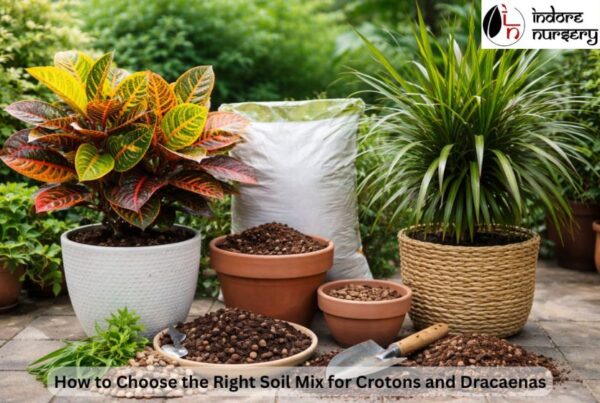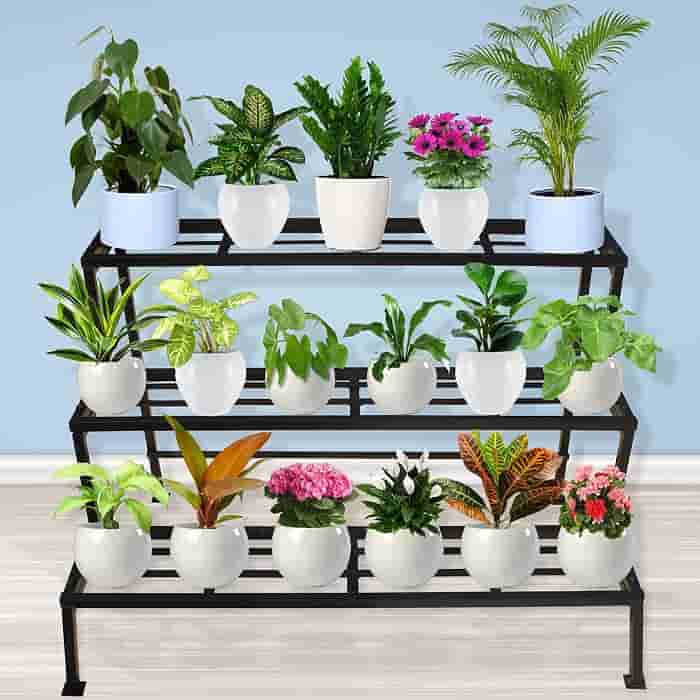Fertilizers have a very crucial role in maintaining soil and plant health. Fertilizers give the plants the nutrients need to grow well. When deciding between fertilizers, gardeners typically have the choice of chemical or organic fertilizers. What we are illustrating here in this blog post is the distinction between organic and chemical fertilizers so that you can choose the right one for your garden.
What Are Organic Fertilizers?
Organic fertilizers are made from natural products, e.g., compost, manure, or residues of plants. Organic fertilizers are rich in organic matter and slow release. Organic fertilizers improve the physical structure of soil, stimulate microbial life, and enhance the soil’s water-holding capacity. That is the reason why organic fertilizers are still in high demand among gardeners because they promote long-term sustainability and healthy balanced ecosystems.
Second, organic fertilizers do not burn plants. Slow release of nutrients prevents possibilities for over-fertilizing the soil. The fertilizers also promote long-term soil health through a rise in the ability of the soil to retain nutrients.
What Are Chemical Fertilizers?
Chemical fertilizers, however, are chemically treated from inorganic materials. They are a specific mix of nutrients like nitrogen, phosphorus, and potassium. Chemical fertilizers are made to bring immediate impacts, using the nutrients on plants directly.
However, chemical fertilizers also upset the soil equilibrium. In the long run, they can lead to the depletion of microbes, soil erosion, and even induce nutrient imbalances. While they might lead to the development of plants earlier in the short run, whether they are appropriate for soil fertility in the long run is not sure.
Key Differences Between Organic Fertilizers and Chemical Fertilizers
Content of Nutrients
Organic manures contain mixed nutrients. Therefore, The nutrients are released slowly and give equal amounts of nutrients to plants within a given span of time. Chemical manures release huge amounts of nutrients all at once. They are therefore appropriate for plants that grow quickly and need rapid nutrients.
Soil Health
Organic manures are long-term soil health providers. They improve soil structure, increase water-holding capacity, and encourage the development of beneficial microbes. It maintains the well-being of the plants’ growth medium.
Nevertheless, chemical fertilizers will sooner or later destroy the soil’s health. Chemical fertilizers kill the microbial diversity and hence result in a deficiency of nutrients in the soil. Moreover, over-reliance on chemical fertilizers may cause acidification of the soil, which may be destructive for the roots of plants as well as for microbes of the soil.
Environmental Impact
Organic manures are minimal environmental inputs. Because they consist of natural elements, they can never be the source of erosion or pollution in the soil. They also neutralize the carbon footprint of agriculture because they promote sustainable agriculture.
Chemical fertilizers also contaminate the environment. Chemical fertilizer may leach its nutrients into water bodies and encourage water pollution and algal blooms. This may further affect aquatic ecosystems and lead to the degradation of natural ecosystems.
However, the decision between chemical and organic fertilizers is your choice based on your gardening routine and objectives. Organic fertilizers would be your best option if you wish to apply long-term sustainability and health to the soil. They suit gardeners who wish to achieve a healthy and balanced environment.
But if you want quick results and crops that need lots of nutrients within a short period, chemical fertilizers would be ideal. For instance, when you are visiting the best plant nursery in Indore, you might be recommended to use chemical fertilizers in some crops that need speedy growth.
Things to be Considered When Selecting Fertilizers
When deciding between chemical and organic fertilizers, the following should be taken into consideration:
Soil Health: Organic fertilizers are more suitable to improve soil health and microbial activity.
Plant Type: Chemical fertilizers can be applied to fast-growing plants, whereas slow-growing plants can be given organic fertilizers.
Environmental Concerns: If you are an eco-conscious individual, organic fertilizers are the best option.
Budget: Organic fertilizers are costly, but they pay back long-term value in the form of soil fertility.
Conclusion
Both chemical and organic fertilizers have pros and cons. Organic fertilizers would be best suited for people who want to nourish the soil and perform environment-friendly gardening. Chemical fertilizers are quick to act and can prove extremely beneficial if plants grow extremely rapidly. Choose a fertilizer depending on your goal, environment-friendliness, and plant needs.
If you have to buy quality plants and fertilizers, you may purchase from the online plant nursery in Indore. Another alternative available for you is buying from the biggest nursery in Indore so that you get multiple gardening solutions depending on your choice. Proper fertilizers will make your plants healthy and robust, and for this reason, your garden will be a hit.










Recent Comments